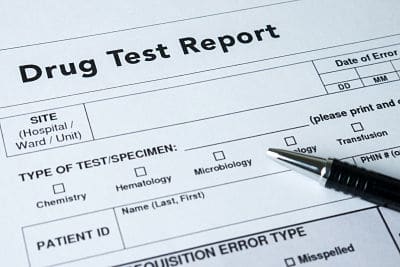With the state’s recent legalization of recreational marijuana under the Cannabis Regulation and Tax Act (“Cannabis Act”), many Illinois residents have questions about the legal implications for their daily lives, including in the workplace. Of particular concern to injured workers is how a positive drug test will impact a workers’ compensation claim.
First and foremost, a positive drug test following a work injury will likely hurt your chances of receiving workers’ compensation benefits. However, it is not impossible to overcome this obstacle, provided that your Illinois workers’ compensation lawyer can demonstrate the strength of your claim and meet the burden of proof placed on you by state law.
What Is the Law in Illinois?
In 2011, there was a major overhaul of the Illinois Workers’ Compensation Act. One of the most important changes involved drug or alcohol use at the time of an accidental workplace injury.
The revised Act states that “there shall be a rebuttable presumption that the employee was intoxicated and that the intoxication was the proximate cause of the employee’s injury” if the injured employee:
- Has a blood alcohol content of 0.08% or higher;
- Tests positive for the unlawful or unauthorized use of cannabis, a controlled substance, or an intoxicating compound; or
- Refuses to submit to a drug or alcohol test.
This means that the burden of proving that drug or alcohol use WAS NOT the cause of a workplace injury falls on the employee; before 2011, the employer had the burden of proving that intoxication WAS the cause of the accident. Under this new law, your employer’s workers’ compensation insurance could presume that being under the influence of the drug for which you tested positive was the cause of your injury and deny your workers’ compensation claim.
Does a Positive Drug Test Automatically Kill My Claim?
But even with a positive drug test, you and your Illinois workers’ compensation attorney have the opportunity to overcome this presumption and demonstrate that your presumed intoxication was not the sole proximate cause or proximate cause of your injury. If you are able to meet this burden of proof, you MAY still be eligible to receive workers’ compensation benefits.
To help you obtain these benefits, your workers’ compensation lawyer will need to prove that your injuries arose out of and occurred in the course of your employment and not solely as a result of your intoxication. For instance, if it can be shown that an intoxicated employee suffered an injury while working because of defective safeguards or because another worker dropped heavy equipment on him or her, that employee MIGHT be able to meet the burden of proof and obtain benefits.
In cases in which you were too intoxicated to carry out the duties of your employment, however, compensation will likely be denied. For example, an intoxicated employee who sustains an injury by crashing a company vehicle will almost always be disqualified from receiving workers’ compensation benefits.
Are There Special Challenges Associated With a Positive Marijuana Test?
These claims become more challenging in cases involving a positive drug test for marijuana. Unlike tests for alcohol use, the current testing technology for marijuana usage cannot demonstrate the presence of the THC levels associated with “impairment,” only evidence of prior usage, sometimes as far back as a month earlier. Nevertheless, a positive cannabis test could still establish the legal presumption of intoxication that you will have to overcome, especially if your employer reported subjective signs of impairment.
You should also know that the legalization of marijuana in Illinois DOES NOT protect you from termination.
It is still illegal to consume or test positive for cannabis if you work for a federal employer, as cannabis possession and consumption remains illegal under Federal Law.
The Cannabis Act also allows a non-federal employer to establish a Zero Drug Tolerance policy. Employees can be terminated for testing positive for THC following a random drug test, provided that they were already informed of the policy.
Even a non-federal employer without a Zero Drug Tolerance policy can require an employee to take a drug test IF there is reasonable suspicion of “impairment,” the testing is done in a non-discriminatory manner, and the employee is afforded the opportunity to contest the findings.
However, even if you were lawfully terminated under one of the above circumstances following a work injury, it does not automatically doom your workers’ compensation claim. You MIGHT still qualify for benefits, provided that your Illinois workers’ compensation attorney is able to overcome the assumption that your intoxication was the proximate cause of your injury.
Does a Positive Drug Test Present Other Problems?
Keep in mind, though, that overcoming this assumption is an uphill battle. A positive drug test would add considerable expense and litigation timing to any case in order to try and persuade a conservative arbitrator that drug use was not causally related to the work accident. This in turn could delay your medical treatment and recovery. It would likely take a very knowledgeable Illinois workers’ compensation lawyer to meet the burden of proof necessary for you to have any chance of obtaining benefits.
How Do I Improve My Chances of Obtaining Compensation?
To improve your chances of obtaining workers’ compensation benefits with a positive drug test, do what so many have done before you and reach out to the workers’ compensation attorneys at GWC Injury Lawyers LLC.
GWC is one of the leading Workers’ Compensation and Personal Injury law firms in Illinois, with over $2 billion recovered in verdicts and judgments on behalf of our clients. For more than four decades, our dedicated Illinois workers’ compensation lawyers have been helping injured employees overcome defense objections so they can get the justice they deserve.
Contact GWC today to schedule a free, no-obligation consultation with a workers’ compensation attorney. You may call our office at (312) 464-1234 or click here to chat with a representative at any time.
<< BACK TO BLOG POSTS